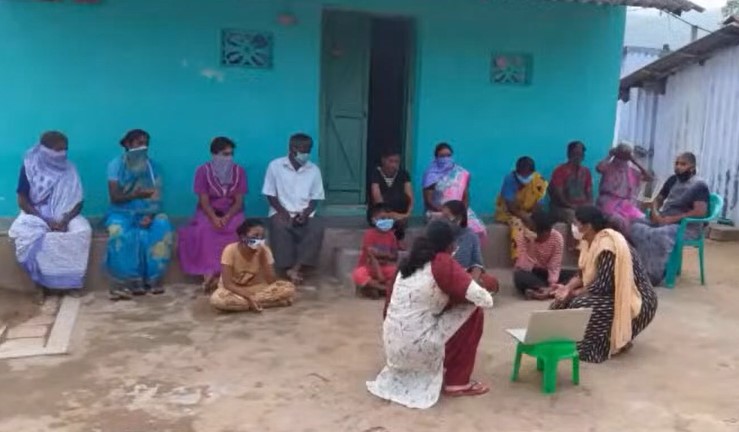Using technology as a tool to address health gap and improve livelihood
Details:
Information and Communication Technology (ICT) enabled integrated rural nutrition center (IRNC), a multi-disciplinary initiative developed with the help of DST-Seed involves expertise in food, science, nutrition, and computer science engineering. The study comprises developed technology i.e, information and communication technology involving the GIS-based mobile application, image processing, artificial intelligence, and data analytics tools and the adopted technologies at IRNC include solar dehydration, oil extraction, pulverizer, and vacuum packing food as part of its food processing unit.
“I was trained about the applications, operations and significance of the developed Nutritional Deficiency Diagnosis android app. I have also received training in identifying the clinical signs and symptoms of nutritional deficiencies. By demonstrating the application of this technology to the community members they get to know about their nutritional deficiencies through this application and the reasons for these deficiencies. Also, through this technology some non-synergistic combination of foods was highlighted that they didn’t even understand earlier,” said Ms. Malathi, the change maker.
The developed android application was implemented with an objective to diagnose nutritional deficiency diagnosis, promote the consumption of diverse food and monitor the diet diversity, educate the community on food groups and check symptoms. The identified vulnerable individuals are referred to diet counseling and other referral services.
‘I work as a farmer. Seasonally, I raise crops on my three acres of land. Every year, groundnuts are planted in April and harvested in July. I was trained to use the Integrated Rural Nutrition Center's (IRNC) services, where I learned to use Solar polyhouse technology for drying groundnuts and oil extraction technology for value addition. Due to the low-cost accessibility of technologies at IRNC, my income has increased significantly and my standard of living has improved, said Mr. Prem Kumar, the beneficiary.
The food processing technologies are adopted to avoid post-harvest losses and to utilize the agri-foods for value addition. So, the livelihood improvement is through the establishment of developed as well as the adopted technologies. The project was implemented in the Madukkarai block of Coimbatore District, Tamil Nadu. The project's major goal is to help achieve the Sustainable Development Goals of no poverty, zero hunger, good health and well-being, reduced inequalities, and responsible consumption and production.
IRNC intends to promote the community's health and well-being, boost food diversity, and raise awareness of the importance of the community kitchen garden for growing their own vegetables. Various training programs are organized for the cultivation of local and seasonal vegetables, fruits, and leafy vegetables that can be grown in their backyard. The acquired skills result in better utilization of their own fresh produce leading to a rise in the diversity in the daily diet and also the excess produce is sold in the community farm outlets. These approaches increase the community's health and well-being while also improving its livelihood
Principal Investigator: Dr Janci Rani
Contact info: b_janci@cb.amrita.edu
Implementing Agency: Food Nutrition and Health Education Center, Amrita Vishwa Vidyapeetham, Coimbatore, Tamil Nadu
Funding Agency: Science for Equity Empowerment and Development (SEED) Division, Department of Science and Technology
